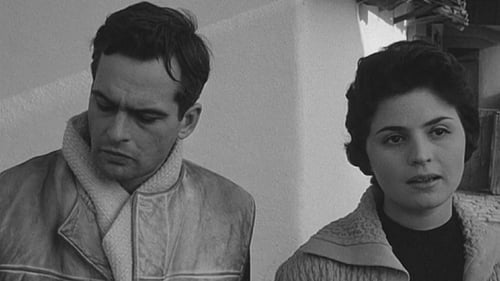János Koltai
출생 : 1935-06-08, Budapest, Hungary

Perczel

The scene is Ukraine. In 1943, after the Hungarian' defeat at the river Don, soldier Balogh decides to visit his family.

Priest
This Hungarian film chronicles the slow deterioration in the life of Juli, a farmer's wife. As the countryside grows ever more deserted because people are moving to towns or large collective farms, she spends more and more time alone. Despite her best efforts to appreciate her situation, her despair grows. The loneliness is briefly interrupted when she and her husband take in an old woman and care for her, but the woman dies. Shortly after her son visits, she is killed in an accident which may have been a suicide. ~ Clarke Fountain, Rovi

Lõrinc pap
The film is a historic parable about the topicality of revolution. 1514. The peasants' uprising is over, Dózsa has been arrested. Werbőczy tries to get the imprisoned peasant leader deny the revolution and offers him the lives of his people in exchange.

Gyönyörű, párttitkár
This ironic comedy is set in the god-forsaken Kiskúnbékás, at the end of the fifties. There are no jobs, the town's "golden team", who once were third class national soccer players have scattered

Peasant
Set during a turbulent era of disquiet, fear, persecution and terror, which permeates every corner of post-WWI Hungarian society. In 1919, after just a few months of communist rule the Hungarian Republic of Councils falls victim to a nationalist counter-revolution. Admiral Horthy, leader of the nationalist far right movement, becomes the self-proclaimed regent of Hungary, and assumes power as the legal Head of State. Soldiers of the short-lived Hungarian Red Army are now on the run from relentless secret policemen and patrol units of the nationalist Royal Gendarme. If caught, ex-Red Army soldiers are executed without mercy or proper trial. István Cserzi, a former soldier of the Red Army has fled to the Great Hungarian Plains and has taken refuge on a farm, which is run by two sympathetic women. Due to the generosity of these women and a former childhood pal...

A 40-year-old sculptor returns home to witness the baptism of his young nephew. His return prompts a series of flashbacks to his youth and the political upheaval experienced by his family and friends.

Fülöp Bánó
The changing and turbulent history of Hungary is seen through the eyes of three men over a 30-year period in this somber drama. The three recall the highlights of their lives in flashbacks as they reminisce in the mid 1960s. The venerable trio begin their story in the 1930s, through World War II, and the decade beyond the communist invasion of 1956.

Kerekes (Antal Pager) believes he is wanted by the police when his friends play a practical joke in this unusual comedy drama. He returns to his hometown where he was accused of turning a Jewish druggist and the druggist's wife over to the Nazis. With his friends following him, Kerekes tries to find out what became of the couple after they were deported. After being subjected to a mock trial by his friends -- and found guilty -- Kerekes becomes despondent and attempts to kill himself. Flashbacks and hallucinations are employed to tell this story that occurs during the Eichmann trial. Both the film and Antal Pager gained some unwanted publicity when a Variety article from April 23rd, 1967 accused Pager of being a Nazi collaborator for his role in an anti-Semitic film during World War II.

Múmia

Adolf Gottlieb
Andras Kovacs' film, considered one of the most important Hungarian films of the 1960s, centers around four men who await trial for their involvement in the massacre of several thousand Jewish and Serbian people of Novi Sad in 1942. Each denies any responsibility, claiming that they were only following orders. The film is significant for its willingness to address the subject of Hungary's role in WWII, which was taboo at the time of the its release.

Török Mihály
For the first time after 11 years, Simon, a young historian visits the village of his childhood at Balaton and Aunt Lina, his foster-mother. He gets upset by what he experiences there: the old woman's troublesome and vexing everydays, her quiet sadness. He is overwhelmed by his own memories, the death of his foster-father and by everything he was not aware of before, or he simply wanted to forget.

Varjú Béla
1860년대 말, 헝가리에서 코슈트 러요시가 이끌었던 헝가리 혁명이 진압되고 오스트리아가 헝가리의 패권을 다시 잡았던 시기를 배경으로 하고 있다. 저항군들은 고립된 요새에 감금된다. 수용소의 교도관들은 이 수감자들 중에 반란군의 지도자들이 있다는 사실을 알게 되고 그들의 색출을 위해 온갖 고문을 자행한다.

Hazatérõ zsidó
In the final days of World War II, a young Hungarian is making his way home, through countryside full of the debris of war, when he is captured and imprisoned by Russians. Left in the custody of a young Russian soldier, the two youths form a friendship in spite of not speaking each other's language.

The story recalling the spirit of Gilgamesh, the Sumerian king quarrelling with his approaching death, takes place in a cancer hospital in Budapest. Dávid, the young ethnography scientist resigned to his lot and is indifferent to his approaching death. His specialist reckons, however, that such a searching and stubborn mind with thorough knowledge of the nature of his own illness, will be able to fight death.

Iván Kovács
전도유망한 젊은 의사 ‘암브루슈’는 은퇴한 노교수가 존재감을 증명하려고 집도하는 심장 수술에 참여한다. 수술 이후 자신의 삶에 회의를 품게 된 ‘암브루슈’는 목적 없는 인생과 미래를 알 수 없는 사랑에 지쳐 고향으로 떠난다. 그리고 귀향길에서 아버지의 신념과 인간애를 느끼며, 다시 새로운 희망을 얻는다. (한글자막 제공_전주국제영화제)

Artist
Huszárik's graduation film was another short entitled Groteszk (Grotesque) in 1963 about a strange train voyage of an artist carrying his own picture.

Sebők Zoltán, the brain surgeon, performed a secret abortion on his lover and the woman died. The man waiting for the autopsy (and his arrest) escapes to his father's villa at Lake Balaton.














